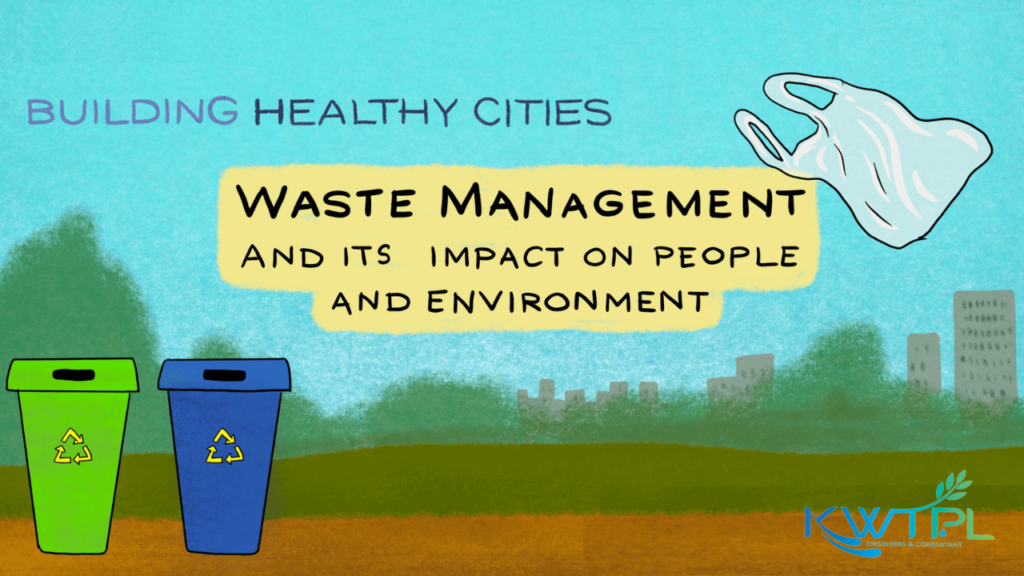What is Waste Management and its Impact?

Waste management is a fundamental aspect of modern society, encompassing a range of processes, techniques, and strategies aimed at handling waste materials in an efficient, safe, and environmentally responsible manner. From collection and transportation to treatment and disposal, waste mgmt plays a crucial role in preserving natural resources, protecting public health, and mitigating environmental pollution. In this comprehensive exploration, we delve into the intricacies of waste mgmt and analyse its multifaceted impact on various aspects of our lives and the environment.
At its core, waste mgmt involves the organized collection, transportation, processing, and disposal of waste materials generated by human activities. These waste materials can originate from residential, commercial, industrial, agricultural, and healthcare sources. The primary objectives of waste mgmt are to minimize the adverse environmental and health impacts of waste while maximizing resource recovery through recycling, composting, and energy recovery.
Types of Waste
Waste materials can be categorized into several types based on their origin, composition, and potential environmental impact:
- Municipal Solid Waste (MSW): This includes everyday household waste such as food scraps, packaging materials, paper, plastics, glass, and textiles.
- Industrial Waste: Generated from manufacturing processes, industrial waste may consist of chemicals, hazardous materials, wastewater, and by-products.
- Construction and Demolition Waste: Generated from construction, renovation, and demolition activities, C&D waste includes concrete, wood, and metals.
- Hazardous Waste: This category includes waste materials that pose a risk to human health, such as toxic chemicals & medical waste.
- Biodegradable Waste: Organic waste materials such as food waste, yard trimmings, and agricultural residues that can decompose naturally under proper conditions.
Waste Management Techniques
- Source reduction: This approach focuses on reducing the amount of waste generated at the source through product design, packaging optimization.
- Reuse and Recycling: Reusing products and materials or recycling them into new products helps conserve natural resources, reduce energy consumption.
- Composting: Composting organic waste materials such as food scraps, yard waste, and agricultural residues produces nutrient-rich
- Compost that can be used to improve soil health and support plant growth.
- Waste-to-Energy: It reduces the volume of waste and recovers energy using technologies such as incineration & gasification.
- Landfilling: Landfills are designed to safely contain and manage solid waste that cannot be recycled, composted, or converted into energy. Proper landfill management includes measures to prevent leachate and methane emissions.
Environmental Impact of Waste Management
Effective waste management practices have significant environmental implications, influencing air quality, water resources, soil health, biodiversity, and climate change. Here are some key environmental impacts associated with waste management:
- Air Pollution: Improper waste disposal methods like uncontrolled landfilling can release harmful pollutants, including greenhouse gases (GHGs).
- Water Contamination: Improper disposal of hazardous waste can contaminate groundwater and surface water.
- Soil Degradation: IT can contribute to soil contamination and the deposition of harmful chemicals, heavy metals, and organic pollutants.
- Biodiversity Loss: Improper waste management practices, such as habitat destruction due to landfill expansion or pollution-related impacts, can threaten wildlife habitats, biodiversity, and ecological balance.
- Climate Change: Landfills and incineration processes release methane and CO2 into the atmosphere, contributing to global warming and climate change. Adopting waste-to-energy technologies and promoting recycling and composting can help mitigate these emissions.
Social and Economic Impact of Waste Management
- Public Health: Inadequate waste management practices can pose health risks to communities, including exposure to pollutants, disease vectors.
- Resource Conservation: Recycling and waste diversion initiatives conserve valuable resources such as metals, plastics, paper, and glass,
- Job Creation: The waste management sector provides employment opportunities in waste collection, recycling facilities, composting operations, waste-to-energy plants, environmental consulting, and regulatory compliance.
- Regulatory Compliance: Governments and regulatory agencies implement waste management regulations, policies, and standards to ensure proper waste handling, pollution prevention, and public safety. Compliance with these regulations is essential for businesses and industries.
- Costs and Sustainability: Effective waste management requires investment in infrastructure, technology, education, and enforcement. Sustainable waste management practices aim to balance environmental protection with cost-effectiveness and long-term sustainability.
Conclusion
Waste management is a multifaceted discipline with profound impacts on the environment, society, and economy. By adopting sustainable waste management practices, businesses, governments, and individuals can mitigate environmental pollution, conserve resources, protect public health, and promote circular economy principles. waste management is not just a necessity but a responsibility that transcends individual Wastes and impacts the collective well-being of society and the planet. Through effective waste management practices, we can mitigate environmental pollution, conserve valuable resources, protect public health, and promote sustainability.